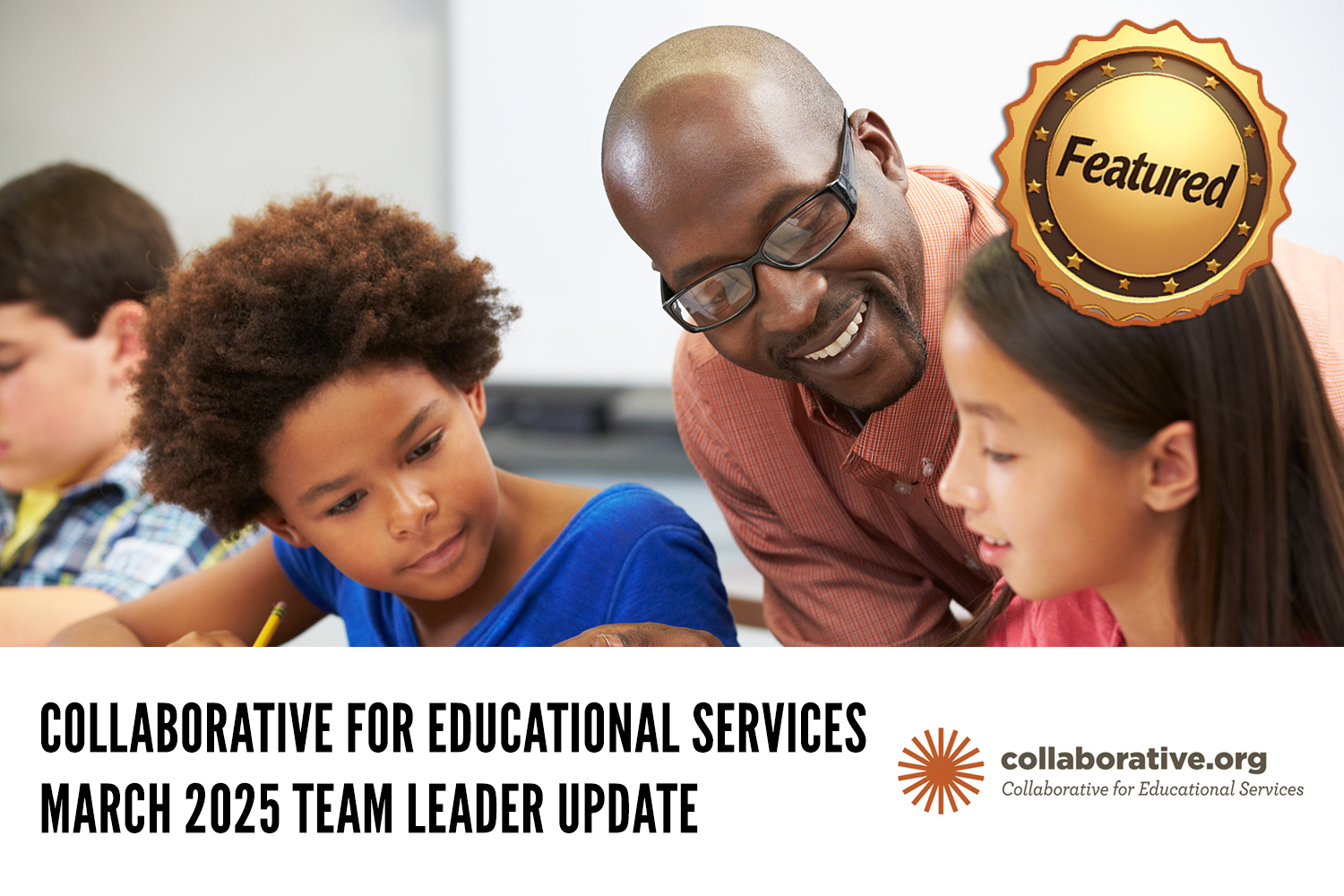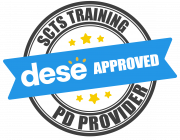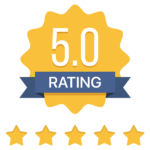Best Practice Spotlight:
Designing Specially Designed Instruction (SDI)
feature in Collaborative for Educational Services March 2025 Team Leader Update by Laural Peltier
Recently, I had the chance to talk with content experts from Strategic Calibration Training Systems (SCTS) about specially designed instruction (SDI). During our conversation, we looked together at the federal regulations describing SDI at 34 CFR 300.39(b)(3).
The language in the regulations reminds us that SDI is about:
- adapting content, methodology, or delivery of instruction
- to meet the disability-related needs of the child, AND
- to ensure access to the general curriculum so that the child can meet the educational standards that apply to all children in the school.
One of these experts reminded me that the most important word in the phrase “specially designed instruction” is the word DESIGNED. Here’s a tool that SCTS developed to help providers articulate the elements of design in a way that aligns with federal requirements. Here are two skill cards (one for reading, one for math fluency) that show how this tool could be completed to support team planning for SDI. These could be used for training staff.
There are some underlying practices that teams must adopt in order to complete the SDI process in a way that fits with federal requirements. These include:
- Identify the target standards: School-based providers have to talk about the performance of students with disabilities in relation to the standards that apply to all children.
- Identify, gather and share data that show the performance of the student with a disability in relation to the target standards: School-based providers need to use data that come from classrooms or regular monitoring activities. In most cases, these data are the same data we use to understand the progress of all learners.
- Individualize the design of instruction: SDI should not look the same from child to child. The whole purpose of specially designed instruction is to design our approach to meet the unique needs of each child with a disability.
School-based members of the IEP team should be able to answer the following questions during the IEP team meeting in order to ensure a compliant and collaborative approach to SDI:
- What are the learning standards that this child needs to attain by the end of the IEP period? Targets should fit with the learning standards for the grade the child will be in when the IEP period ends. If targets are about behavior, social, or emotional development, they should come from
school-wide behavior expectations or developmental expectations for the age the child will reach when the IEP ends. - What are the data we use to understand the progress of all children toward these standards? We need to come prepared to share data about what the child is currently doing. We need to share it so that all team members understand what it means. We need to connect it to what the target
expectation for all children is at the age or grade level that this child has currently attained. - When we do this, our design targets the student’s effective progress in the general curriculum.
SCTS Featured for SDI Work in March 2025 IEP Team Leader Update
About Collaborative for Educational Services
Massachusetts Educational Collaboratives are non-profit educational services agencies that bring school districts together to form partnerships that create regional educational resources. Collaboratives benefit districts, students, families, educators and taxpayers by maximizing efficiency through shared costs and expertise. They play a leadership role in developing a broad range of innovative programming to meet emerging needs by providing training, enabling the sharing of exemplary educational practices and serving and educating many of our most vulnerable students across the Commonwealth.
CES is a member of the Massachusetts Organization of Educational Collaboratives and the national Association of Educational Services Agencies. We direct major initiatives in Early Childhood, Special Education, After School Programs, Professional Development, Educator Licensure, Technology in Education, Social Justice in Education, English Learner Education, Migrant Education, and the education of vulnerable youth.
Click here to learn more about Collaborative for Educational Services







